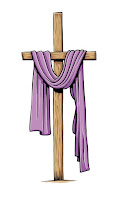Sir Norman Anderson
Anderson's conclusion, 'after a lifetime of analysing this issue from a legal perspective, was summed up in one sentence': "The empty tomb, then, forms a veritable rock on which all rationalistic theories of the resurrection dash themselves in vain." [J.N. D. Anderson, The Evidence for the Resurrection (Downers Grove, III; Inter Varsity Press, 1966), 20 ("...one of the towering legal intellects of all time, the Cambridge-educated Sir Norman Anderson, who lectured at Princeton University, was offered a professorship for life at Harvard University, and served as dean of the Faculty of Laws at the University of London.' - Lee Strobel, The Case for Christ, 300-301)
William Craig
"The Gospels were written in such temporal and geographical proximity to the events they record that it would have been almost impossible to fabricate events...The fact that the disciples were able to proclaim the resurrection in Jerusalem in the face of their enemies a few weeks after the crucifixion shows that what they proclaimed was true, for they could never have proclaimed the resurrection (and been believed) under such circumstances had it not occurred... If there had been a conspiracy, it would certainly have been unearthed by the disciples' adversaries, who had both the interest and the power to expose any fraud. Common experience shows that such intrigues are inevitably exposed." From his Knowing the Truth About the Resurrection
"WE have two narratives of Hannibal crossing the Alps to attack Rome, and they're incompatible and irreconcilable. yet no classical historian doubts the fact that Hannibal did mount such a campaign. That's non-biblical illustration of discrepancies in secondary details failing to undermine the historical core of a historical story."
(quoted in Strobel, The Case for Christ, 290-291. William Lane Craig, doctorates in philosophy (Uni of Birmingham, England) and theology (University of Munich); visiting scholar at the Higher Institute of Philosophy at the University of Louvain. His books include Reasonable Faith; No Easy Answers; Knowing the Truth about the Resurrection; The Only Wise God; The Existence of God and the Beginning of the Universe; and (with Quentin Smith) Theism, Atheism, and Big Bang Cosmology. He is a member of nine professional societies, including the American Academy of Religion and the American Philosophical Association.
N.T. Knight (Bishop of Durham, Oxford NT scholar)
(from 'The Self-Revelation of God in Human History', Appendix B, in A Flew, There is a God, pp206-207)
"The third fascinating feature of the [resurrection] narratives is the place of the women... In the ancient world, Jewish and pagan, women were not credible witnesses in the law court....It's fascinating that in Matthew, Mark, Luke, and John we have Mary Magdalene, the other Marys, and the other women. And Mary Magdalene, of all people (we know she had a very chequered career in the past), is chosen as the prime witness: she is there in all four accounts. As historians we are obliged to comment that if these stories had been made up five years later, let alone thirty, forty, or fifty years later, they put Mary there is, from the point of view of Christian apologists wanting to explain to a sceptical audience that Jesus really did rise from the dead, like shooting themselves in the foot. But to us historians this kind of thing I gold dust. The early Christians would never, never have made this up. The stories - of the women finding an empty tomb and then meeting the risen Jesus - must be regarded as solidly historical."
Pascal, Pensees 322, 310.
"The hypothesis that the Apostles were knaves is quite absurd. Follow it out to the end, and imagine these twelve men meeting after Jesus' death and conspiring to say that he had risen from the dead. This means attacking all the powers that be. The human heart is singularly susceptible to fickleness, to change, to promises, to bribery. One of them had only to deny his story under these inducements, or still more because of possible imprisonment, tortures and death, and they would all have been lost. Follow that out."
